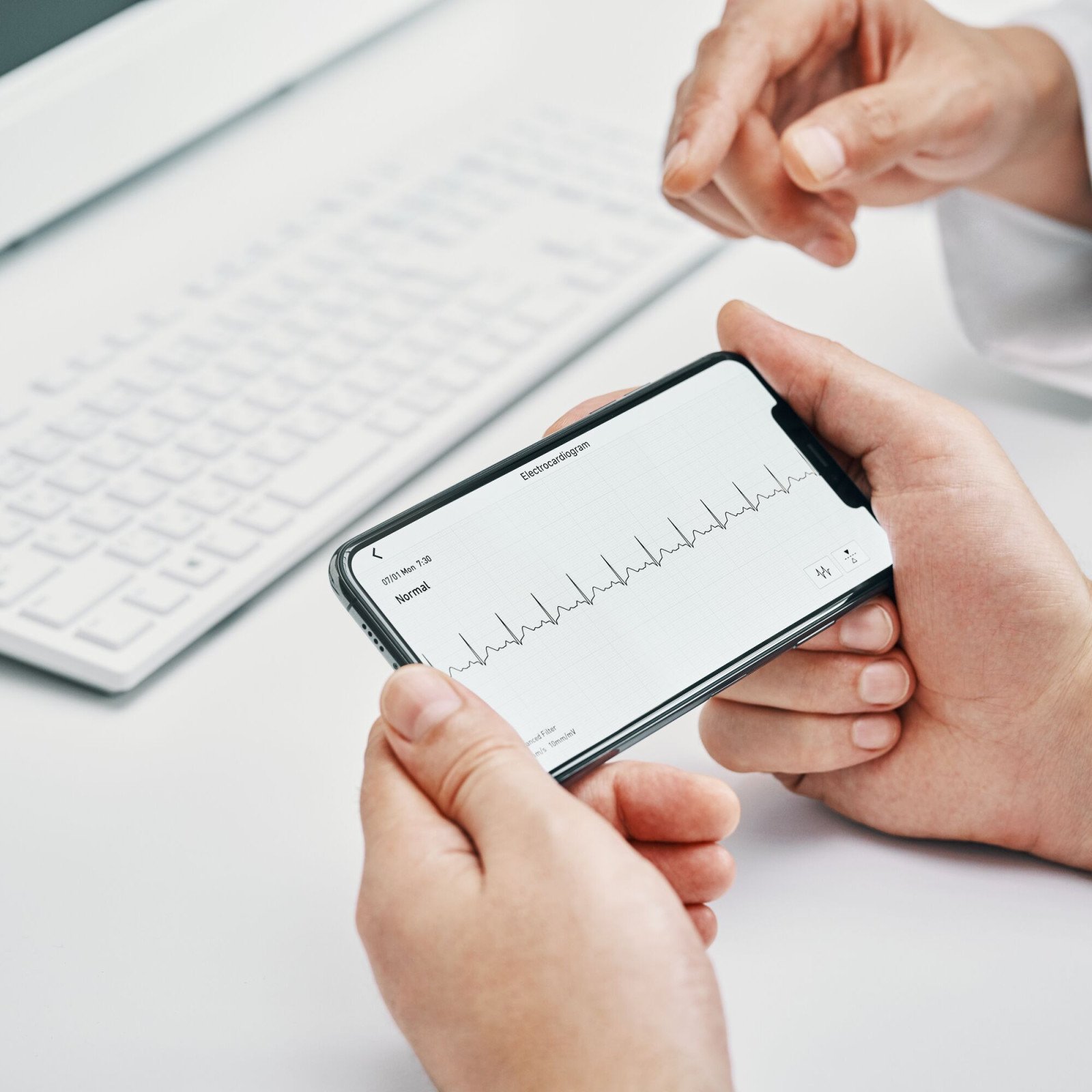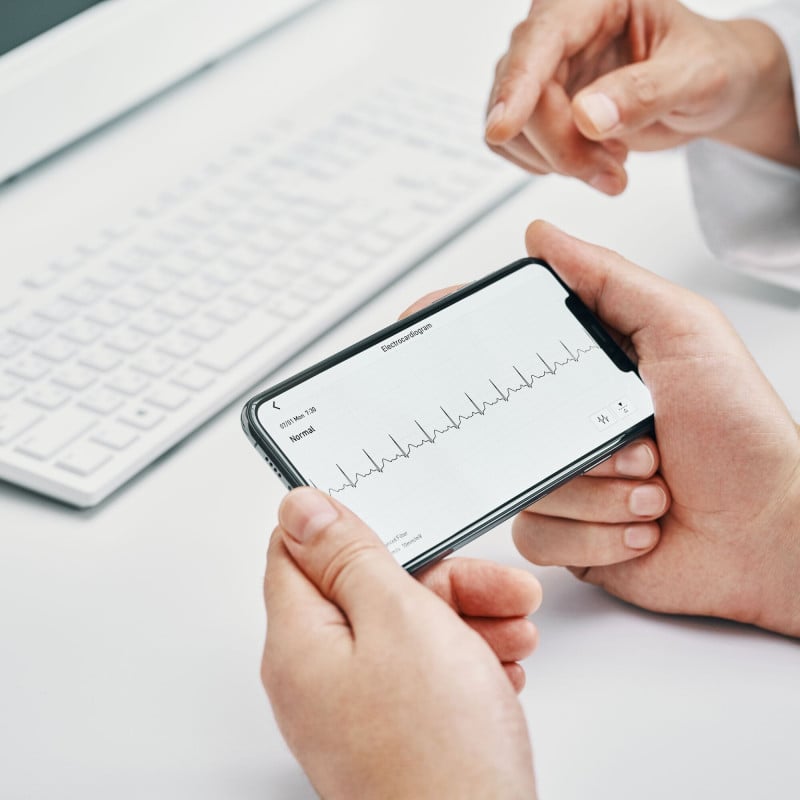Why should I use an electrocardiogram (ECG)?
An electrocardiogram (also called ECG) is a test that measures the electrical activity of the heartbeat. With each beat, an electrical impulse (or “wave”) travels through the heart. This wave causes the muscle to squeeze and pump blood from the heart. Doctors can use this information to detect cardiac conditions such as heart rhythm irregularities.
What is Atrial fibrillation?
Atrial fibrillation (also called AFib) is the most common form of irregular heart rhythm that often occurs in combination with hypertension and could lead to a stroke if left unchecked.
Screening
Medical studies have shown us that AFib and high blood pressure often coexist, and it’s also true that both increase the risk of stroke. In the early stages, AFib recurs less frequently and is more difficult to detect. For people already measuring blood pressure at home as part of their hypertensive care, regular electrocardiogram (ECG) screening can help to identify heart rhythm irregularities that can lead to more serious cardiac problems.
Risk of Afib
People with high blood pressure have a higher risk (40% in women and 50% in men) of atrial fibrillation (AFib), both of these conditions may lead to stroke. AFib is associated with a 5x greater risk of stroke, but effective treatment may reduce this risk. Early detection and treatment of AFib reduces risk of stroke by 68%.
How is AFib related to stroke?
AFib increases the risk of stroke by around 5 times. This is partly due to the upper chambers of the heart not pumping blood well enough, which can lead to small quantities of blood pooling in the heart and then there’s a risk of blood clots forming.7 If any blood clots do form then they could move into the lower chambers of the heart, and from here enter other parts of the body as the blood circulates. So, there is a risk that a clot being carried around the body by the circulation could block an artery in the brain and cause a stroke.











